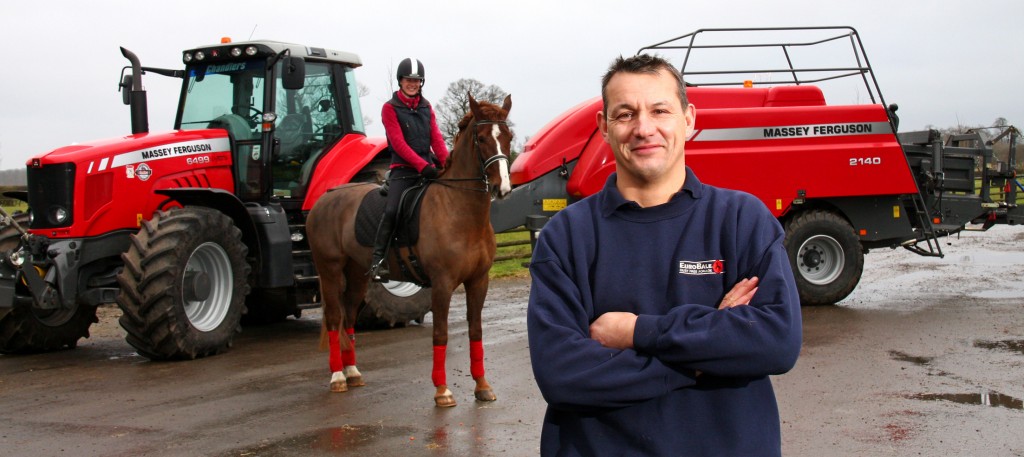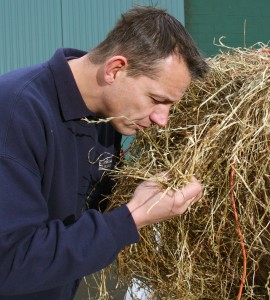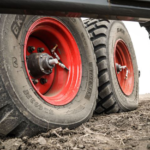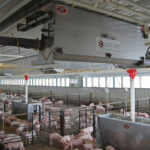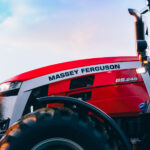MF 2140 STEPS UP THE PACE IN HAYLAGE
Haylage is a notoriously tricky crop to bale but an MF 2140 which joined the fleet at UK-based Eurobale in 2010 is putting in a flawless performance according to co-owner, Richard Brooks. Indeed, the Massey Ferguson big square baler’s increased...
MF 2140 STEPS UP THE PACE IN HAYLAGE
Haylage is a notoriously tricky crop to bale but an MF 2140 which joined the fleet at UK-based Eurobale in 2010 is putting in a flawless performance according to co-owner, Richard Brooks. Indeed, the Massey Ferguson big square baler’s increased...Haylage is a notoriously tricky crop to bale but an MF 2140 which joined the fleet at UK-based Eurobale in 2010 is putting in a flawless performance according to co-owner, Richard Brooks. Indeed, the Massey Ferguson big square baler’s increased capacity has triggered a 45% rise in output – and all this without compromising the existing bale wrapping and packaging operation.
Being virtually spore- and dust-free, haylage is a preferred feed for the equine market, providing essential fibre for gut motility. Supplying over 9000 tonnes a year to major equestrian establishments including racehorse trainers and event riders, father and son partners, Geoff and Richard Brooks of Eurobale in Nottinghamshire have developed a highly successful business centred on the supply of this premium niche product.
“Having always ridden ourselves, we have wide experience of the horse market and understand what’s required,” says Richard. “We defined a need for the reliable supply of a consistent high-quality traceable product delivered direct in bulk,” he says. Today, the firm takes care of the entire process, from seeding the grass right through to harvest, nutritional analysis, bale wrapping, storage and delivery. Some of their biggest customers take 300-400 tonnes a year.
“There are several key issues to producing haylage for the demanding horse market,” Richard explains. “The requirement for high quality means harvesting at just the right time. If cutting is delayed by three or four weeks, the selling price can halve – hence the need for reliable, high-capacity equipment. We have only a very short window to cut the crop. It’s important to get the timing right and go in when the protein content is at the correct levels.”
“The first cut of 750 ha takes place in June and we hope to be finished by mid-July. In recent years, the weather has been such that in some seasons we have had only two harvestable days in June. We make a second cut approximately eight weeks later.”
With its 80 x 70 cm chamber, the MF 2140 represents a step up from Eurobale’s traditional 80 x 47 cm bales. “We wanted to move forward this year, and bigger bales were the way to go without having to change our wrapping equipment back at the yard,” Richard explains. “The bales are still small enough for easy handling by our customers but with significant increase in capacity. Now with every MF 2140 bale we wrap, we’ve increased output by 45% simply because of the size of the bale.”
Bales are packed six to a pallet, weighing 1400 kg. For full traceability, each bale is numbered and tagged with details of cutting date, dry matter value and field of origin. Once with the customer, the bales tend to be used in situ, broken down as required and the flakes transported by wheelbarrow.
But it’s not only bigger bales where the MF 2140 is making an impact. Manufactured in Hesston, Kansas, the machine’s build quality and reliability is also impressing.
“Another challenge with haylage is that it’s a difficult crop to bale,” comments Richard. “While straw tends to polish up the inside of the bale chamber and silage is wet, haylage is baled at 65% dry matter so it’s slightly sticky. The high level of sugars can build up a residue inside the chamber and cause problems.” Added to that, in Eurobale’s case, they always run the baler with a high plunger load setting to achieve maximum bale density, creating a demanding environment in which it has to operate.
“In 2010, our MF 2140 produced 20,000 bales faultlessly,” Richard says. “You only have to open up the panels at the side to see the quality – the machines produced at Hesston are built to a completely different standard. The double knotter system is another big advantage as it allows the bales to be made at full density without putting undue pressure on the knotters. The pre-compression chamber is also a benefit since it forms each flake separately which makes for easier feeding of long, course material like first-cut Timothy.”
Spurred on by the positive impact of the MF 2140 on the business, Eurobale is adding a further two units for the 2011 season together with a new MF 6499 tractor which is being drafted in to operate a new triple combination mower.
Tell us your success story while using Massey Ferguson products.

